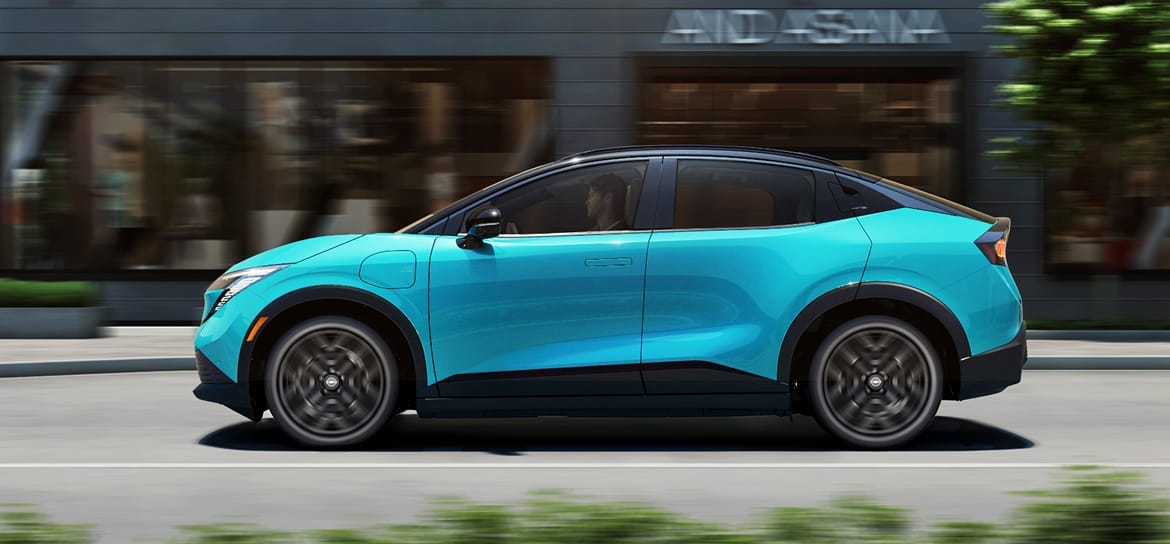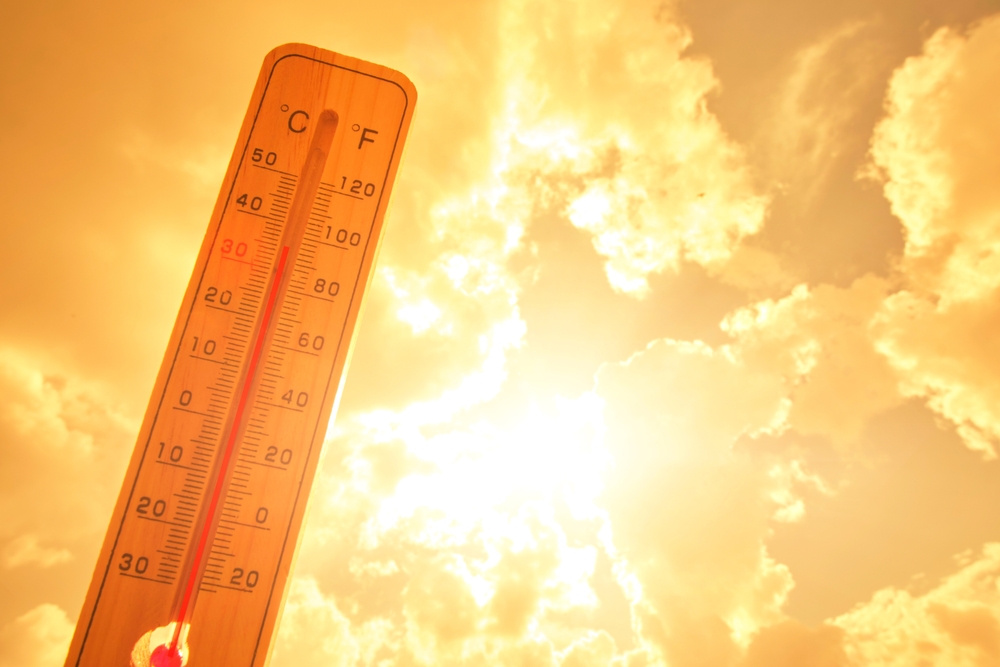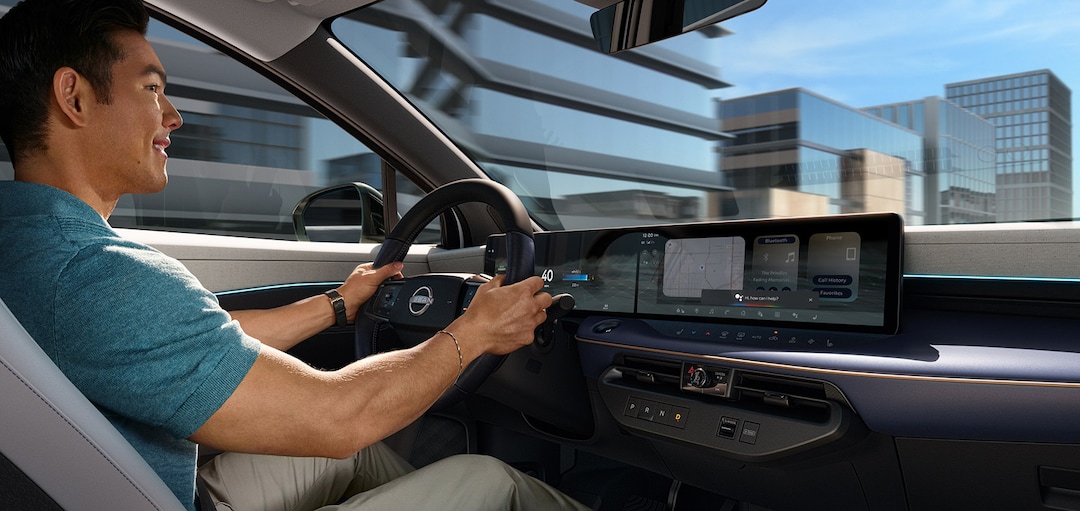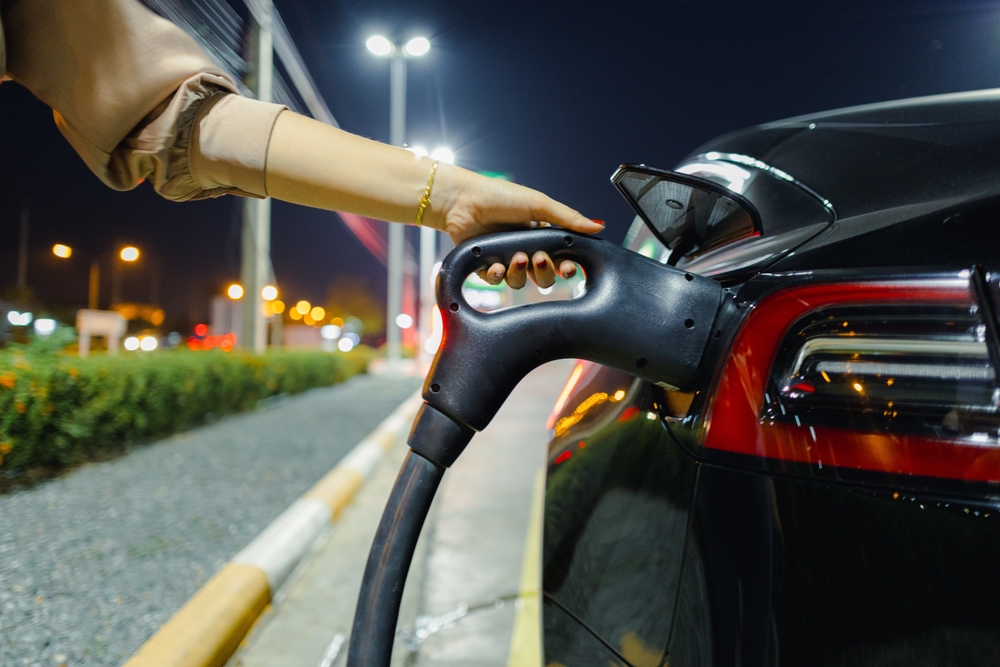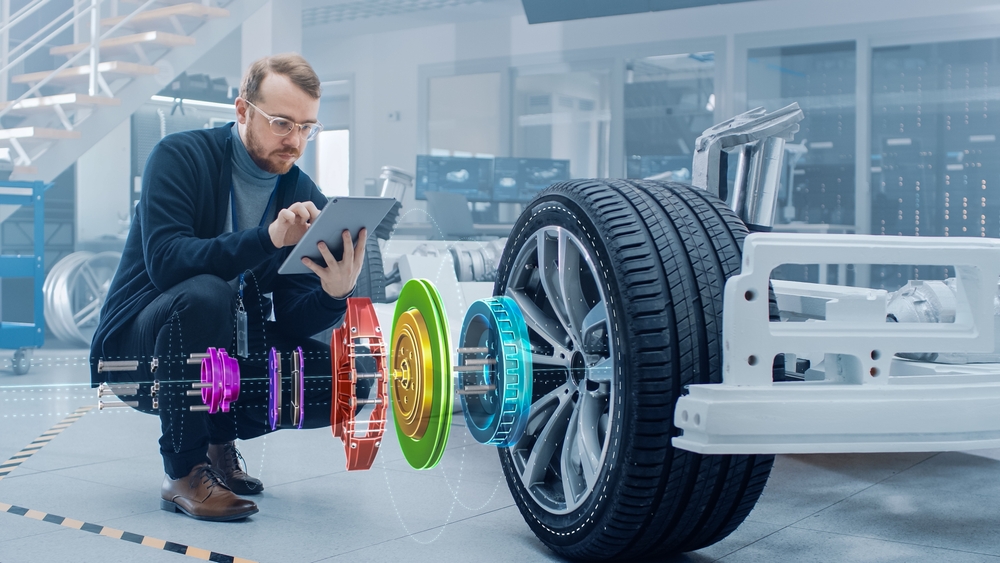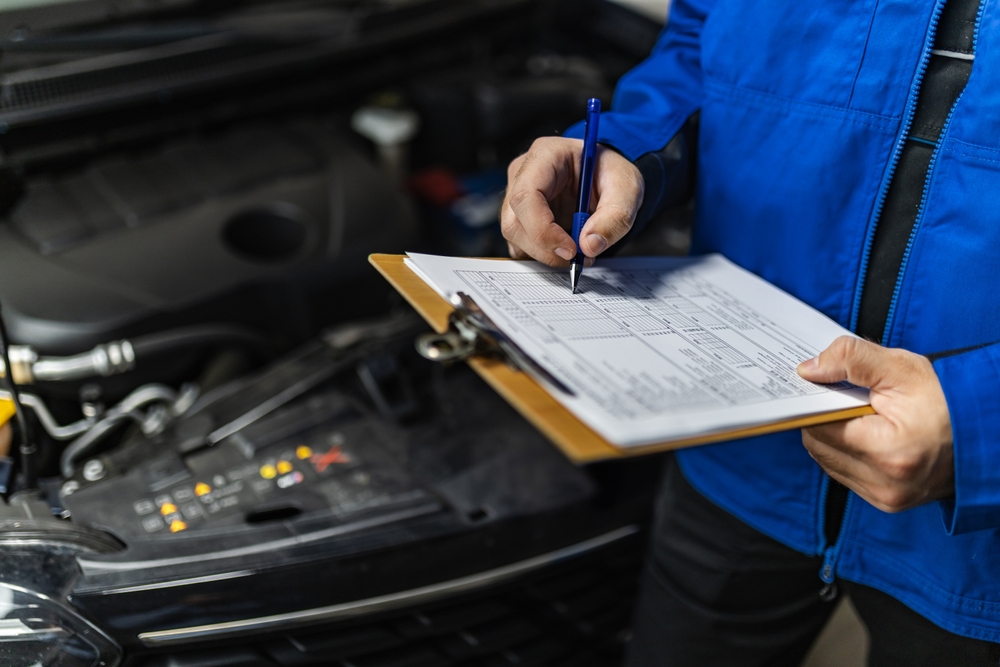If you’ve noticed your Nissan Leaf isn’t going quite as far on a charge lately, you’re definitely not alone. Gainesville summers are brutal, and they’re particularly tough on electric vehicles. The sweltering humidity and intense sun can quietly drain your battery faster than you’d expect, leaving you wondering if something’s actually wrong with your car. The good news? There are smart, practical ways to protect your Leaf and squeeze every possible mile out of each charge, even when the thermometer hits the mid-90s. Understanding how Florida’s heat uniquely affects your EV—and what you can realistically do about it—means you can confidently drive around town without constantly worrying about running out of power before you make it home.
Why Gainesville’s Heat Is a Challenge for Your EV Battery
Gainesville’s climate is genuinely challenging for electric vehicles, and it’s not just about the temperature. From May through September, average highs consistently hover around 90–92°F, with humidity levels that make it feel considerably hotter. This combination creates a perfect storm for EV batteries, which are extremely sensitive to prolonged heat exposure. When temperatures climb, the chemical reactions inside lithium-ion cells speed up dramatically, which accelerates degradation over time and reduces the overall capacity your battery can hold. Gainesville Nissan Service sees this firsthand—local Leaf owners frequently ask why their range drops noticeably during summer months, especially after parking outdoors near the University of Florida campus or at Butler Plaza on a scorching afternoon.
Heat doesn’t just affect long-term battery health; it immediately impacts your driving range too. According to research from the Department of Energy, how high temperatures affect EV range shows that extreme heat can reduce range by 17% or more, particularly when you’re running the air conditioning at full blast to stay comfortable. That means if your Nissan Leaf typically gets around 150 miles on a full charge in moderate weather, you might realistically only see 125 miles during a Gainesville heat wave. For daily commutes to places like North Florida Regional Medical Center or Shands Hospital, this reduction can genuinely affect your planning and peace of mind.
The Nissan Leaf’s “Secret” – Understanding Your Air-Cooled Battery
Here’s something many Leaf owners don’t initially realize: your Nissan Leaf uses a passively air-cooled battery system, which is fundamentally different from the liquid-cooled systems found in many other electric vehicles. Instead of actively pumping coolant through the battery pack to regulate temperature, the Leaf relies primarily on airflow and ambient temperatures to keep things under control. This design makes the car lighter and simpler, but it also means your battery is more vulnerable to Florida’s relentless heat compared to EVs with active cooling systems. When you’re parked in direct sunlight at the Oaks Mall parking lot on a 95-degree day, that battery pack can get seriously hot with no active mechanism to bring the temperature down quickly.
The science behind this matters for your daily driving. Studies on how heat structurally degrades lithium-ion cells show that elevated temperatures accelerate what’s called “calendar aging”—basically, your battery ages faster just by existing in hot conditions, even when you’re not actively driving. This is particularly relevant in Gainesville, where even overnight temperatures in summer rarely drop below 75°F. That’s why understanding your vehicle’s specific cooling design helps you make smarter choices about parking, charging times, and when to seek professional diagnostics from certified EV service technicians who truly understand these systems.
5 Driving Tips to Instantly Boost Your Leaf’s Range
Small changes in how you drive can immediately make a meaningful difference in your Nissan Leaf’s range, especially during Gainesville’s hottest months. These aren’t complicated tricks—they’re practical adjustments that work with your EV’s technology to maximize efficiency.
- Precondition Your Cabin While Still Plugged In: Before you unplug and head out, use your Leaf’s remote app or timer to cool down the interior while the car is still connected to power. This means you’re using electricity from the grid instead of your battery to fight that initial blast of heat, preserving precious range for your actual drive. On a typical Gainesville summer day, preconditioning can easily save you several miles of range right off the bat.
- Use Eco Mode and Regenerative Braking: Your Nissan Leaf’s Eco mode intelligently limits acceleration and optimizes energy use, which genuinely extends your range. Pair this with the strongest regenerative braking setting (B-mode), and you’ll recapture energy every time you slow down, essentially turning stop-and-go traffic on Archer Road into an opportunity to recharge slightly.
- Keep Your Speed Steady on Highway Drives: Wind resistance increases exponentially with speed, so driving 70 mph on I-75 uses considerably more energy than cruising at 60 mph. If you’re not in a huge rush, keeping your speed around 60–65 mph can dramatically improve your range—sometimes by as much as 20–30 miles on longer trips.
- Be Strategic with Air Conditioning: Instead of blasting the AC at maximum cold, try using the “recirculation” setting and aiming vents directly at passengers rather than cooling the entire cabin to arctic levels. Air conditioning is genuinely one of the biggest range drains in hot weather, so finding a comfortable middle ground can save you significant battery power throughout the day.
- Minimize Extra Weight and Drag: Every extra pound your Leaf carries requires more energy to move, so clear out unnecessary items from your trunk and cabin. If you’ve got a bike rack or cargo carrier attached, remove it when you’re not actively using it—external accessories create additional drag that noticeably reduces efficiency.
How to Park & Charge Your Nissan Leaf in a Heatwave
Where and when you park your Nissan Leaf can honestly make just as much difference as how you drive it. Gainesville’s intense sun can heat your battery pack to temperatures that actively degrade its performance and longevity, so being strategic about parking isn’t just about comfort—it’s genuinely about protecting your investment over the long term.
Whenever possible, seek out covered or shaded parking, especially during peak sun hours between 11 AM and 4 PM. The difference between a Leaf parked in direct sunlight versus under a carport can easily be 15–20 degrees in battery temperature, which directly translates to better range retention and slower long-term degradation. If you work near downtown Gainesville or the university, look for parking garages or tree-covered spots that shield your car from constant exposure.
Charging strategy matters just as much. Ideally, charge your Nissan Leaf during cooler parts of the day—early morning or late evening—when ambient temperatures drop into the 70s rather than the 90s. Charging generates additional heat within the battery pack, and doing this during already-hot conditions compounds the thermal stress on your cells. If you’re charging at home, consider setting your timer to start around 10 PM and finish by 6 AM, ensuring your battery stays cooler throughout the process. For more guidance on optimal charging practices specific to your Leaf, schedule a battery health check with technicians who understand these nuanced Florida conditions.
Beyond the “Guess-o-Meter”: Signs Your EV Battery Needs a Check-Up
Your Nissan Leaf’s range estimate—affectionately called the “guess-o-meter” by many EV owners—can be notoriously unreliable, especially in extreme heat. It’s based on recent driving patterns and doesn’t always accurately reflect your battery’s true state of health. That’s why paying attention to specific warning signs is crucial for catching potential issues before they become serious problems.
One clear red flag is if your displayed range drops much faster than your actual miles driven. For example, if you drive 10 miles but your range indicator shows a loss of 15–20 miles, something’s likely off with either your driving efficiency or your battery’s overall health. Another warning sign is if your battery seems to lose charge while sitting unused in hot weather—if your Leaf sits parked for a few days during a Gainesville heat wave and you come back to find the battery noticeably depleted, that suggests the cells are working harder than they should to manage internal heat.
Temperature-related warnings on your dashboard shouldn’t be ignored either. If you see a red thermometer symbol or battery temperature warning, that means your Leaf’s system has detected excessive heat and is actively limiting performance to protect the cells. The National Highway Traffic Safety Administration’s EV battery safety initiatives emphasize that modern battery management systems are designed to prevent dangerous conditions, but they can’t completely stop long-term degradation from chronic heat exposure. That’s where expert evaluation becomes essential—latest service specials often include battery diagnostics that can give you a comprehensive picture of your Leaf’s true health.
Trust Your Nissan EV to Certified Experts in Gainesville
Working on electric vehicles requires specialized knowledge, tools, and training that go far beyond traditional automotive service. Your Nissan Leaf’s high-voltage battery system, complex electronics, and unique cooling design demand technicians who are specifically certified to diagnose and service EV technology safely and effectively. Gainesville Nissan Service employs factory-trained technicians who understand exactly how Florida’s climate affects your Leaf’s performance and what diagnostic steps are necessary to accurately assess battery health, thermal management, and overall system efficiency.
Generic advice from online forums or non-specialized shops can only take you so far. What you genuinely need is someone who can connect advanced diagnostic equipment to your Leaf, analyze individual cell voltages, check for thermal anomalies, and interpret the specific fault codes and performance data that your vehicle’s computer system collects. Research from the National Renewable Energy Laboratory on battery thermal management highlights just how complex these systems are and why professional evaluation is essential for maintaining long-term EV performance in challenging climates like ours.
Beyond diagnostics, comprehensive maintenance keeps your Leaf running efficiently year-round. This includes software updates that can improve battery management, cabin air filter replacements that help your AC system work more efficiently, and tire pressure checks that optimize range. When you bring your Leaf to certified experts who work on these vehicles daily, you get insights and care that simply aren’t available elsewhere. Contact our service advisors to discuss any concerns you have about your Leaf’s performance—they can walk you through what’s normal for Florida conditions versus what might indicate a problem requiring attention.
Gainesville Heat Impact on Nissan Leaf Performance
| Temperature Condition | Expected Range Impact | Primary Contributing Factor | Recommended Action |
|---|---|---|---|
| 75–85°F (Mild Summer Day) | 5–10% reduction | Moderate AC use, minimal battery stress | Normal driving, standard charging routine |
| 85–95°F (Typical Gainesville Summer) | 10–17% reduction | Heavy AC use, increased battery temperature | Use preconditioning, park in shade when possible |
| 95°F+ (Extreme Heat Wave) | 17–25% reduction | Maximum AC load, thermal stress on battery | Limit fast charging, avoid peak sun exposure, consider professional inspection |
| Prolonged Heat Exposure (Weeks/Months) | Long-term capacity loss (1–3% annually) | Accelerated battery degradation from chronic heat | Schedule comprehensive battery health diagnostics |
Note: Range impacts are estimates based on typical driving conditions and can vary based on individual driving habits, terrain, and vehicle age.
FAQs
Q: Does the Florida heat permanently damage my Nissan Leaf battery?
A: Florida’s heat does accelerate battery degradation over time, but it’s not typically “permanent damage” in a sudden sense. Rather, it’s a gradual process where your battery’s total capacity slowly decreases year over year. The Leaf’s air-cooled design makes it more susceptible to this than liquid-cooled EVs, but with smart parking, charging, and driving habits, you can significantly slow this process. Most Leaf batteries still retain 70–80% of their original capacity after 8–10 years even in hot climates, though individual results vary based on how the vehicle is used and maintained.
Q: Should I charge my Nissan Leaf to 100% every night in the summer?
A: No, it’s generally better to charge to around 80–90% for daily use, especially in hot weather. Keeping your battery at a full 100% charge in high heat increases thermal stress on the cells, which can accelerate degradation. Only charge to 100% when you genuinely need the extra range for a longer trip, and try to drive the car relatively soon after reaching full charge rather than letting it sit at 100% in the heat for extended periods.
Q: Is it safe to use a DC Fast Charger on a very hot day in Gainesville?
A: It’s safe in the sense that your Leaf’s battery management system will protect against dangerous conditions, but it’s not ideal for battery longevity. DC fast charging generates significant heat, and combining that with an already-hot battery on a 95-degree day compounds thermal stress. If you need to fast charge during extreme heat, try to do it in the morning or evening when temperatures are lower, and avoid back-to-back fast charging sessions. For regular daily charging, stick with Level 2 charging whenever possible—it’s much gentler on your battery.
Q: How often should I have my Nissan Leaf’s battery professionally inspected?
A: In Florida’s climate, having a comprehensive battery health check annually is genuinely a good idea, especially once your Leaf reaches 3–4 years old or passes 40,000 miles. If you notice any of the warning signs mentioned earlier—unusual range loss, frequent temperature warnings, or longer charging times—get it checked immediately rather than waiting for your regular interval. These inspections aren’t just about identifying current problems; they also establish a baseline that helps technicians track changes over time and predict when you might need to consider battery service or replacement.
Q: Will using the air conditioner dramatically reduce my Leaf’s range?
A: Yes, running the AC at maximum cooling can reduce your range by 15–20% or more in extreme heat, which is significant but not necessarily something you should sacrifice for the sake of efficiency. The key is finding a balance—use preconditioning before you unplug, use the recirculation setting, and avoid setting the temperature to an arctic 60 degrees when 72–74 degrees is perfectly comfortable. The goal is to stay cool without unnecessarily maxing out your climate system, which gives you both comfort and reasonable range for daily Gainesville driving.
Schedule Your Nissan Leaf Battery Health Check Today
Don’t let range anxiety or battery uncertainty keep you from enjoying your Nissan Leaf around Gainesville and North Central Florida. The Nissan-certified EV technicians at Gainesville Nissan Service are here to provide comprehensive diagnostics and expert care, whether you drive a brand-new Leaf or one that’s been reliably serving you for several years. We have the specialized diagnostic equipment, genuine Nissan expertise, and deep understanding of Florida’s climate challenges to keep your electric vehicle performing at its absolute best.
With Gainesville’s summer temperatures consistently in the low-to-mid 90s and humidity making it feel even more oppressive, addressing battery concerns early prevents bigger issues and protects your investment long-term. Our thorough diagnostic approach reveals exactly how your battery is performing, identifies any thermal management concerns, and gives you clear, honest recommendations so you can drive confidently knowing your Leaf is truly ready for Florida’s demanding conditions.
Click here to schedule your EV battery health check and drive with complete peace of mind!
Or visit us at 3915 N. Main Street, Gainesville, FL 32609, and let our certified EV specialists ensure your Nissan Leaf delivers reliable range and performance throughout every Florida summer ahead.

